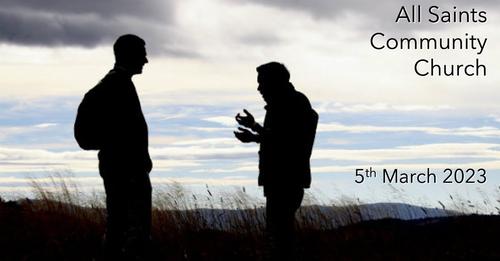
If you click HERE, you’ll find last Sunday’s service—the 12th March—the Third Sunday in Lent.
(In case you missed it, you can find our service for the Second Sunday in Lent HERE.
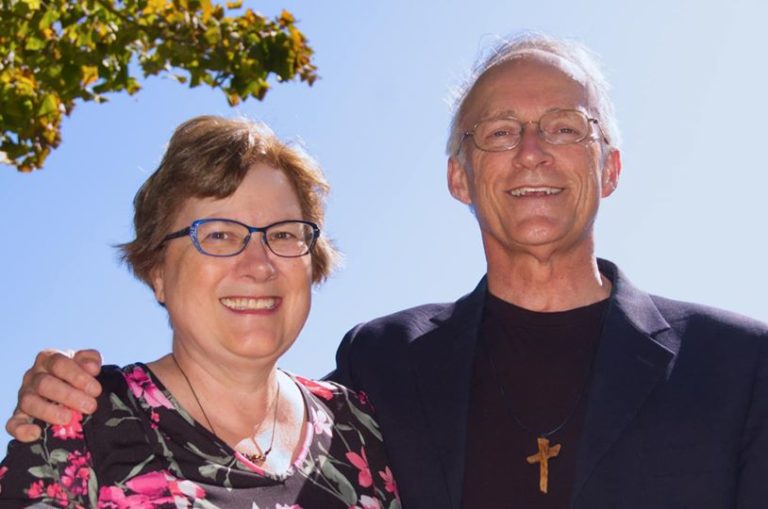

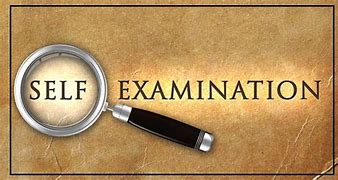
The Lenten Discipline of self-examination (Proverbs 27:14-27)
By Rev. Dr. Ed Hird
(part 2 of a 3 part series on Proverbs 27 & 28)
March 12th 2023
Many of us have heard of the recent spontaneous student-led revivals on many college campuses, beginning with Asbury college, Dr E Stanley Jones’ alma mater. Asbury, going back to E Stanley Jones in 1905, keeps having unplanned times of revival decade after decade. The Asbury revival of 1970 helped birth the Jesus movement portrayed in the amazing Jesus Revolution movie. We’ve now seen it three times with various family & friends.
How many of you would welcome an outpouring of revival and renewal in Crescent Beach even during these 40 days of Lent? Because God is sovereign, We cannot make revival happen, but we can prepare our hearts for coming revivals. There are six key Lenten disciplines to help us prepare for revival: prayer, fasting, self-examination, repentance, Bible-reading, and generosity to the poor. E. Stanley Jones said that there is no freedom without discipline. Many people don’t like the word ‘discipline’. Some people use the alternate term ‘rhythm’ or ‘habit’ or ‘practices’. Either way we need to build these disciplines in our lives to fully prepare to celebrate Jesus’ death & resurrection less than a month from now.
Paul said in Galatians 4 that he was into the pains of childbirth until Christ was fully formed in others. How many of you would like, through self-examination, to have Christ more fully formed in you? Less of you, more of Him. Sometimes spiritual formation through self-examination can feel overwhelming because it challenges us to move beyond our comfort zone & make changes. It may feel like staring blindly down a dark well.
Self examination however is a vital Lenten tool in our growth in holiness, what the Bible calls sanctification. How many of us have regular medical, automobile and housing examinations and checkups? How much more important is an annual spiritual checkup & examination during Lent? As Bishop Peter puts it, Lent is a 40-day journey in the desert. Self examination is a desert discipline.
Some of you may be wondering: What is self examination anyways? The Oxford Dictionary defines it as the study of one’s own behavior and motivations.
Self-examination is not just what we are doing, thinking, or feeling, but even more importantly why we are doing what we are doing. How many of you came from a family where self examination was practiced and perhaps even taught?
The Greek philosopher Socrates, before being executed, said “The unexamined life is not worth living.” You may have noticed Jesus in the Sermon on the Mount was always going beyond outward behaviour to inwards motivations. Our heart motivations is the heart of the matter. As Proverbs 4:23 says, above all things, guard your heart for out of it are the issues of life.
Our woke culture tells us to naively trust our heart but the Bible in Jeremiah 17:9 warns that our hearts are deceitful and desperately wicked.
That is why self-examination is so difficult, because it is so easy to con ourselves. The key here is to be as unbiased and objective about ourselves as possible. This is a tall order.
So many of us confuse our pseudo-self with our genuine self. The pseudo-self is the imposter, what I call the Hollywood pretend self. Lent is a great time to get real and stop pretending. Lent is about coming out of the darkness, and walking in the light.
Self-examination is about God doing spiritual surgery on us. How many of us want to be put on the operating table during this Lent? When I first served in 1982 as the assistant priest at St Matthew’s Abbotsford, I had an unusual dream where Archdeacon Major wanted me to do brain surgery. I told him, “I had no idea how, but hang on and I will read a book on how to do it.” In prayerfully discerning the meaning of that dream, I realized that I was the patient on the table and God was doing brain surgery on me, renewing my mind. What if we prayed during this Lent, “Rebuke me, O Lord, in your love. I want to change.”?
One of my favorite Psalms 139 in vs. 23-24 invites God to search our hearts and see if there is any wicked way in us and lead us in the way everlasting. It also affirms that we are each wonderfully and fearfully made. Self-examination is not about self-flagellating yourself in a psychological guilt trip. Self-examination does involve confessing our sins, and faults as in AA’s Step 4 & 5 ‘doing a searching fearless inventory of the exact nature of how we have wronged God and others.”
But it is also about discovering our God-given unique giftedness, strengths, and personality tendencies in Christ. One of the most beautiful thing about one’s spouse is that they are not us. We do not need to apologize for how unique and different that God has made each of us. We are all originals. Don’t try to be a carbon copy of someone else.
What exactly is this self that we are examining? The self in Hinduism is seen as God and therefore sinless. The self in atheistic Buddhism does not exist; it is seen as a mere illusion. (Many people don’t realize that Buddha was an atheist who embraced nothingness.) The self in the Judeo-Christian worldview, however, is made in God’s image and therefore inherently valuable and creative, though broken by sin.
God, according to Acts 1:24 & 15:8, is the heart-knower. Nothing is hidden from him when he examines us. He counts every hair on our heads. Some of you may know the collect for purity where we pray “Almighty God unto whom all hearts are open and all desires known…” That is why soul-searching is so good for the soul. Getting honest with God during Lent is so liberating. You will feel more whole and healthy inside. It begins with first removing any logs in our eyes, so that we can see clearly.
During your Lenten self examination, you may want to ask the Lord to show you if you are bearing any grudges. Dr E Stanley Jones said: “The forgiveness of injuries, the loving of enemies, is the chief characteristic of real Christianity.” Self-examination helps us grow in greater obedience and self-surrender. You might pray: “Lord, I don’t want to forgive that person, but I surrender my bitterness to you.” Our truest self is a surrendered self who is now longer just stuck back in the defeat and rebellion of Romans 7, but who has discovered the Spirit-filled life of Romans 8 and the 2 Corinthians 5:17 identity of being a new creation in Christ Jesus.
Biblical self-examination as Colossians 3:3 puts it, reveals that we have died. Our new life is now hidden with Christ in God. Rather than being obsessed with self realization, self-actualization, or self fulfillment, Christ is our life, our reason to get up in the morning.
Proverbs 27 vs. 14 “If anyone loudly blesses their neighbor early in the morning, it will be taken as a curse.”
How many of you are early risers? Early risers even prefer to floss their teeth in the morning. Sometimes they are too noisy before others want to wake up. I have learned to use headphones in listening to podcasts or music when my wife is still sleeping. Self-awareness and awareness of others helps us not unnecessarily turn our family & neighbours into enemies. I was so clueless when I first got married that I didn’t realize that my wife was not a morning person. Rise and shine, honey!
15- 16. “A quarrelsome wife is like the dripping of a leaky roof in a rainstorm; restraining her is like restraining the wind or grasping oil with the hand.”
Perhaps the quarrelsome wife verses are connected to the clueless husband waking her up too early in the morning. Quarrelling marriages and families may feel intergenerationally normal. We lose awareness of how destructive it is.
17. “As iron sharpens iron, so one person sharpens another.”
Self-examination & self awareness great greatly sharpened through being in a community like All Saints, where iron can sharpen iron. One of the reasons I deeply value being part of All Saints for five years now is that Bishop Peter, with his recovery background, is very gifted in helping people grow in the Lenten spiritual disciplines.
18. “The one who guards a fig tree will eat its fruit, and whoever protects their master will be honored.”
Might one say that All Saints is a fig tree and Bishop Peter is a guardian of the galaxy? 😉
19. “As water reflects the face, so one’s life reflects the heart.:
This is a profound self examination verse, taking us to the heart of the matter. The first mirrors ever discovered were likely through people gazing at still lakes. How many times in your life have you looked at yourself? How long have you gone without ever looking at a mirror? God wants us to look at the mirror spiritually, not only but rather especially at Lent. People often use addictions like workaholism to avoid self examination, looking at the mirror.
Many people secretly hate themselves, so they avoid any self-awareness. They become experts at numbing their consciences and blaming others for any issues in their lives. The blame game always ends badly. Have you noticed? Lamentations 3:40 tells us to examine and test our ways, and return to the Lord.
1 Corinthians 11:26 encourages us to examine our self before we receive communion. You might want to try that this morning. Taking communion glibly without self-examination can actually make us sick or worse. 2nd Corinthians 13:5 challenges us to examine ourselves to see whether you are in the faith; test ourselves. Do you not realize that Christ Jesus is in you?”
Dr Gil Stieglitz encourages self-examination through the use of the Ten commandment or the fruit of the Spirit. In your Lenten self-examining, you might to ask yourself how you have been doing lately in honouring your parents, or telling the truth, not coveting. Dr Gil also trained us in using the seven deadly sins for self examination (Pride, envy, anger, lust, sloth, gluttony, greed). As Christians, we need to regularly self-examine ourselves about the pride of self righteousness, thinking that I am holier than thou.
You probably know that even in prison, there is a pecking order about who is better vs really unforgivable. You might ask yourself how you’re doing in the area of anger and grumpiness. If you are really being brave, seek a rebuke from your spouse by asking them for honest feedback about any of your irritability. You might also ask yourself and others if there is anything that you are slothfully avoiding. Are you perhaps hiding behind excuses, rather than facing responsibility?
In your self-examination, you may wish to ask: where am I being gluttonous, say, with too many video games, too much internet, or too much food? I used to be addicted to sugar, and didn’t think that food would taste good without it. Through my wife’s encouragement, I gave up sugar and am so much healthier because of it.
It can be painful to face the truth about our brokenness. God is not sat all surprised by our brokenness. You will remember what Bishop Peter says about 95% of people being broken. It can be wise to pace ourselves in our Lenten self examination, one day at a time.
Avoid utopian expectations of a quick fix that will immediately solve all your problems, making you perfectly sinless. Growing up in Christ takes time. Have you noticed? The good news is that because of God’s amazing grace, we can trust that God, who knows the worst about us, still loves us anyway. We have deep value as people made in his image, sinners for whom Christ died. Through the new birth, we have become God’s own adopted children. What higher identity could we have than God’s beloved children?
120. “Death and Destruction are never satisfied, and neither are human eyes.”
This is also a profound look at the potential destructiveness of human restlessness. Our culture is so often never satisfied. What if in our Lenten self-examining, we repented of restless negativity and chose to be thankful rather than complaining?
21. “The crucible for silver and the furnace for gold, but people are tested by their praise.”
As part of the Lenten discipline of self-examination, we need to guard our hearts against being taken out by flattery. Watch out for people who put you on pedestals. As Bishop Peter often says, don’t believe your own press. This by the way is a gentle rebuke from Peter, a wise warning about the dangers of our celebrity-driven culture. Fame is a deceiver. Galatian 6:3 is clear that if anyone thinks they are something when they are not, they deceive themselves. By definition, pretending that we are better than other people is not biblical self-examination.
Have you noticed that so much of high school culture is largely pretend culture? That is why only 2% of high school romances survive into adulthood. Just think of those two teenagers Romeo and Juliet. Romans 12:3 encourages us to not think of yourself more highly than you ought, but rather think of yourself with sober judgment.
Sober self-examination protects us from being placed on a pedestal or thrown into the dumps. Some half-empty cup people like to use self examination to trash themselves listening to the day and night voice of the accuser: “I’m no good; I’ll never do better; I might as well give up. I am unlovable and worthless.” The Holy Spirit convicts but never condemns.
Philippians 1:6 promises that he who had begun a good work in us will bring it to completion until the day of Christ Jesus. Thank God as Psalm 103:10 puts it that he does not deal with us according to our sins. We can trust the promise of 1 John 1:9 that if we confess our sins, he is faithful and just to forgive us our sins and cleanse us from all unrighteousness. Any self examination must stay right there at the foot of the cross.
Thank God for the finished work done on Calvary hill. That is why Galatians 2:20 says: “I have been crucified with Christ and I no longer live, but Christ lives in me.” God does not want us lost in narcissistic self-absorption. Excessive navel-gazing will cause us to slowly sink in psychological quicksand.
E Stanley Jones said that the tyranny of self preoccupation brings an unhappy, disrupted self. Have you ever noticed that the most miserable people always want to talk about themselves. Nothing else interests them. Self-preoccupation leaves us lonely, isolated, and emotional cut-off from genuine intimacy as God intends for our families & marriages.
Robert Murray McCheyne, the famous Scottish devotionalist, memorably said: “For every look at yourself, take ten looks at Christ.” Glance at your self while gazing on the cross.
22. “Though you grind a fool in a mortar, grinding them like grain with a pestle, you will not remove their folly from them.”
Fools blindly refuse to examine themselves. Don’t be like them. Husbands, perhaps your wife has a point when she keeps bring up that issue she wants you to look at.
23. “Be sure you know the condition of your flocks, give careful attention to your herds.”
I have watched Bishop Peter in my five years so far at All Saints take careful care for the sheep at All Saints. You can imagine that this Herd verse has been an important verse for raising our three Hird sons and now our four Hird grandchildren.
I will never forget my dear wife Janice Hird asking me how our visiting Hird grandchild was doing. I said ‘great’. She is being very quiet. Yes indeed, they were quietly putting Vaseline on the wall by our front door. The Bible is right: pay careful attention to your herds.;) Self-awareness and herd-awareness go together. Self-identity and family identity are closely connected.
You can see how deeply family wounds shaped the key people in the Jesus Revolution movie: Pastor Chuck Smith’s control needs related to fear of his failure, Lonnie Frisbee’s fear of abandonment and Greg Laurie’s fear that everyone will leave him in the end.
24-27“for riches do not endure forever, and a crown is not secure for all generations. When the hay is removed and new growth appears and the grass from the hills is gathered in, the lambs will provide you with clothing, and the goats with the price of a field. You will have plenty of goats’ milk to feed your family and to nourish your female servants.”
Proverbs 27:14-27 NIV https://bible.com/bible/111/pro.27.14-27.NIV
How many of you want to grow in the area of self examination this Lent? Let us pray:
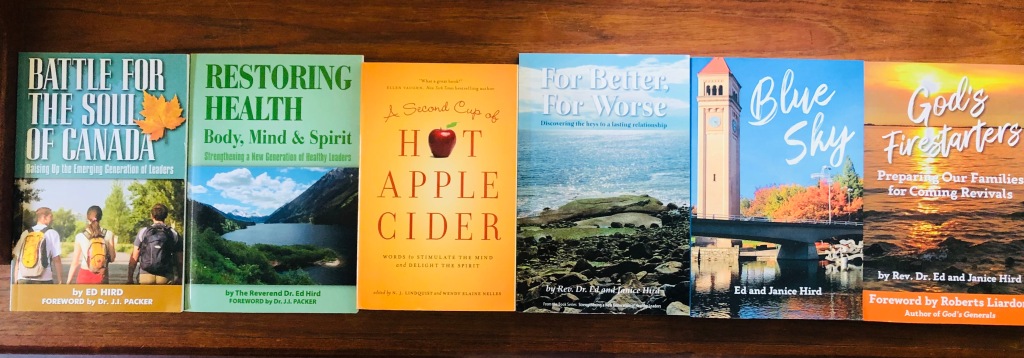
 spiritual breakthrough? A while ago I wrote about BJ McHugh, an eighty-seven year old marathoner. She tells me that she doesn’t always feel like getting up in the morning and going for a run. Because she disciplines her body, she was able to recently run in the Hawaii Marathon with her son and granddaughter. God wants to renew our youth like an eagle, but we need to co-operate by practicing healthy daily discipline.
spiritual breakthrough? A while ago I wrote about BJ McHugh, an eighty-seven year old marathoner. She tells me that she doesn’t always feel like getting up in the morning and going for a run. Because she disciplines her body, she was able to recently run in the Hawaii Marathon with her son and granddaughter. God wants to renew our youth like an eagle, but we need to co-operate by practicing healthy daily discipline.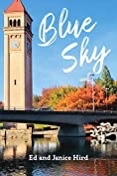 Sandy Brown and her family have just moved to Spokane, Washington where her husband, Scott, is pastoring a new church. With a fresh start, Sandy is determined to devote more time to her four children. But, within weeks of settling in their new life, the Brown family is plunged into turmoil.
Sandy Brown and her family have just moved to Spokane, Washington where her husband, Scott, is pastoring a new church. With a fresh start, Sandy is determined to devote more time to her four children. But, within weeks of settling in their new life, the Brown family is plunged into turmoil.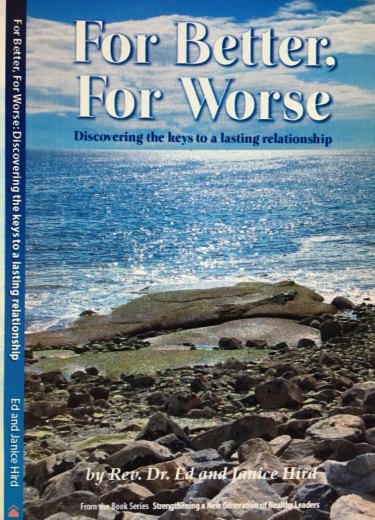
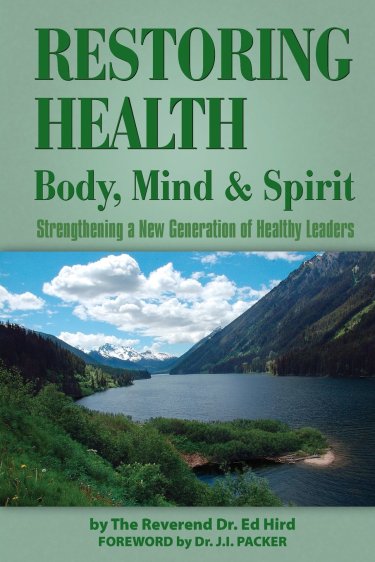
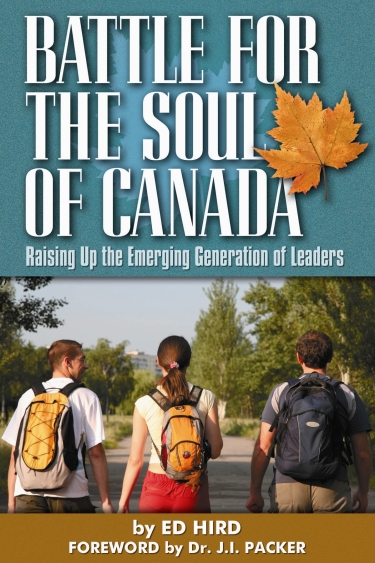
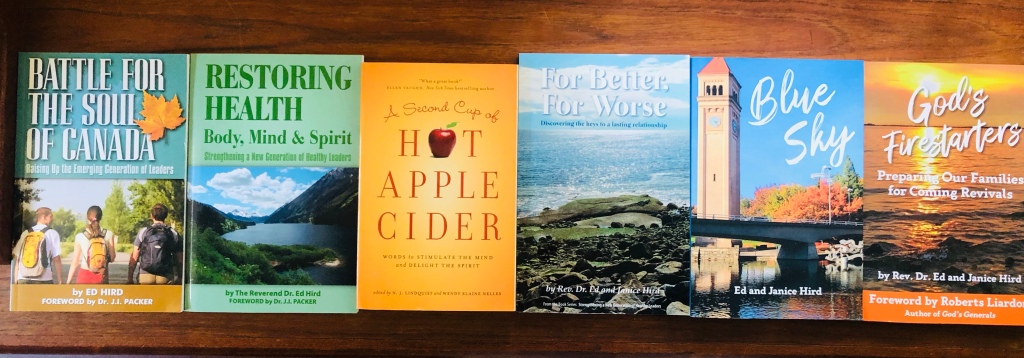
To purchase any of our six books in paperback or ebook on Amazon, just click on this link.
Seek wisdom leading to life and peace.
a supportive and encouraging community that helps equip and develop one another to write for God's glory
life is a gift